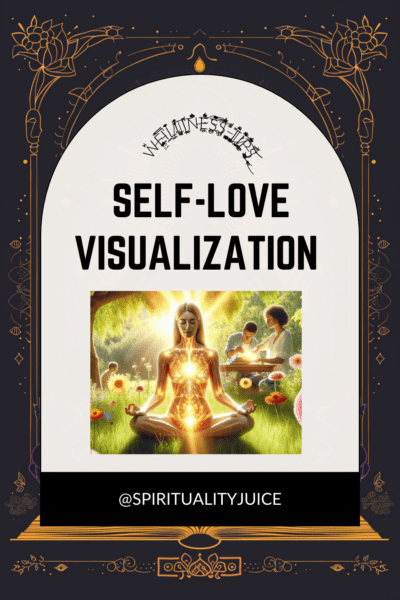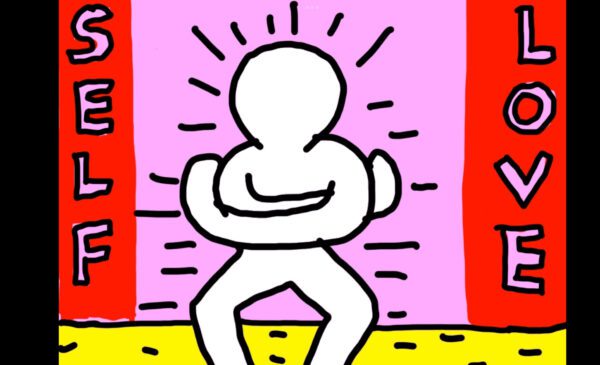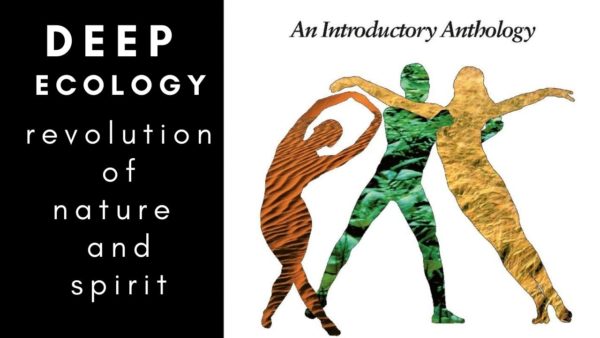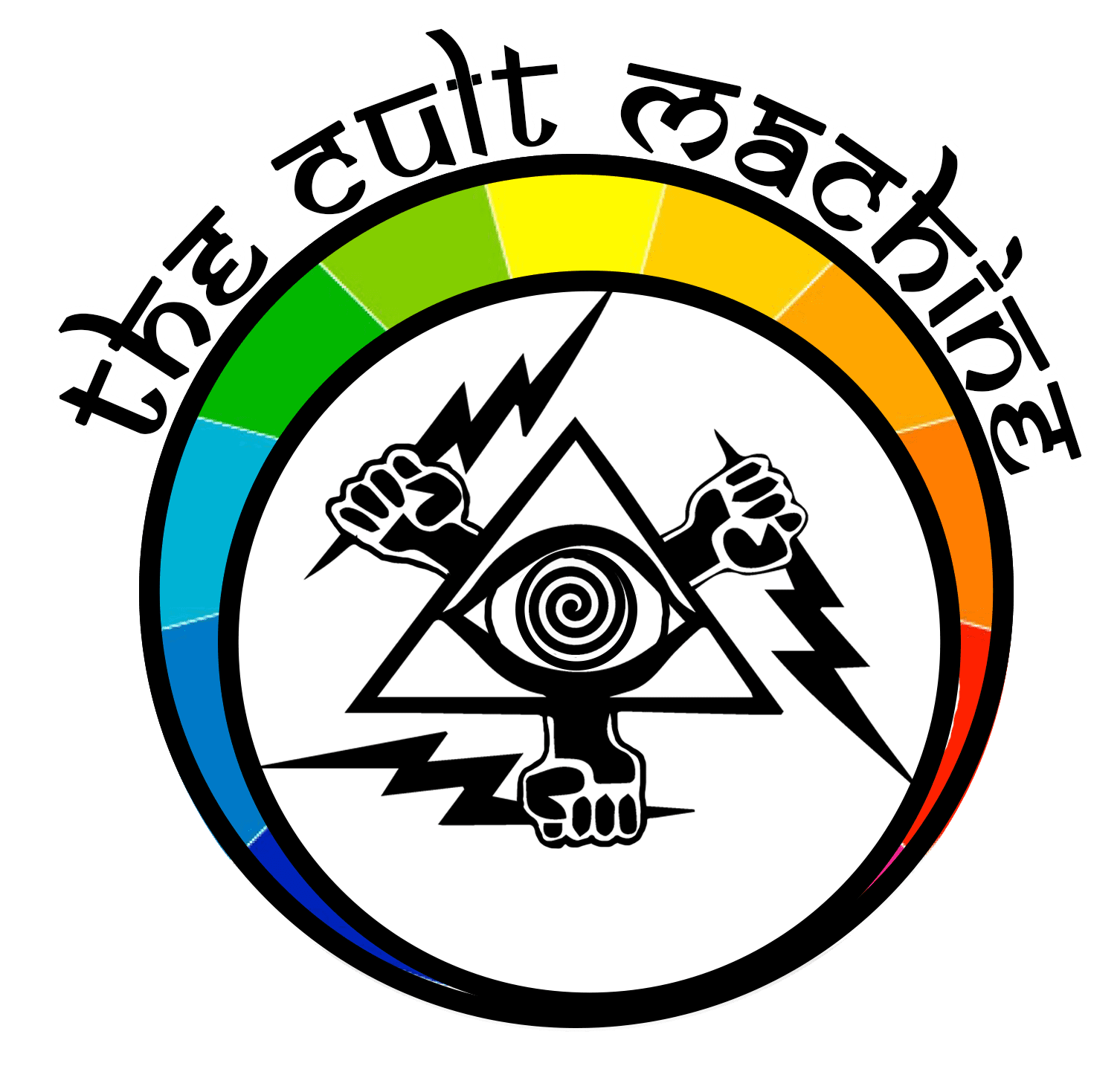Deep ecology is a new kind of eco-spirituality. Yes, most spiritual ecology movements emphasize the need for humans to reconnect to nature. However, most of them are more or less superficial templates to overlay against our already problematic system. Like if you want to consume plastics, its ok, just recycle. Or if you want to stop guzzling gas just switch to electric (how do you think they get energy for those lithium batteries?)
The difference between other spiritual ecology movements and deep ecology is that deep ecology means to create a new way of life, to reshape the entirety of society itself. It means to bring man totally in harmony and balance with the world and it probably will do this by creating a world religion of ecology.
The Green Faith and the Birth of Deep Ecology
Environmentalism is a religion of urban atheism. It believes that people should live in harmony with nature. You know, opposed to “out of sync” with nature. We all know about the impending doom that human activities wrought upon the planet. But this same kind of Armageddon rabble rousing isn’t uncommon when it comes to attitudes of religiosity. Compare that with the middle ages when talks of the apocalypse was in the air. Judgement brought on by human sin. St Norbert 12th century believed apocalypse would come. Paul Ehrlich “population bomb”
Why take a go at Deep Ecology?
Deep ecology offers a definition of the self that differs from traditional notions and is a social movement that sometimes has religious and mystical undertones. It isn’t so much of a stretch for deep-ecology to become a new kind of religion. I mean, ecology itself has been a centerpiece of secularized thought for decades now and it’s picking up steam.
Nature itself is not just meant to serve humans. This is at the center of deep ecology. Rather, it is a vast interconnected web of life and natural events all happening relationally. Deep ecology makes this the heart of its practice and work. That to disrupt this ecosystem is a sin against the planet and against nature itself.

Laying the groundwork for deep ecology
Post-enlightenment narratives emphasized empirical fact over revelation. Inherently the bible was displaced by science books. Religious mythology became the thing of scorn as the world progressed forward headfirst into capitalism. This revolutionary spirit of Capitalism, however, held a dark secret. We focused now on exploiting the environment to the next degree. Nothing was sacred in man’s forward motion of “progress.” In its wake was; pollution, deforestation, build-up of ocean trash, mass farming & industrialized meat processing.
Urban development and large city centers lead to pollution, population & mass production at the expense of through a form of eco-spirituality. Religious belief systems industrialization and modern society. It also shows how urban environments have contributed to the normalization of bad behavior that causes massive groups to have taken humans out of nature and put them into urban environments. Capitalist philosophies emerged as well to reinforce certain norms that began to shape the backdrop.
As time progressed the economic revolution slowed down. Standards of living left people with challenging questions about how the blind progress nearly destroyed the planet in the aftermath. These new challenges and critiques of the new industrialization began to take root
Does deep ecology say exploitation of the environment is the greatest unforgivable sin? Possibly. The human primate has never in the history of its evolution ever wielded so much power to destroy. Industry, space travel, Capitalist forces are proving to be no match for the environment.
Deep Ecology Began as an Eco-spiritualty philosophy
Deep ecology is a growing idea that life and living beings hold intrinsic importance regardless of their use-value. Since the beginnings of modernity and even civilization society has promoted the use-value of material beings. That is, that something’s value comes from its utility and use. So if I have a chicken, it’s only valuable if it has the ability to lay eggs that can fetch me a profit. Instead, deep ecology stresses the idea that all living things have value by the very nature of their existence.
Humans must embrace life on this planet and acknowledge that they’ve exploited it for their gain. Therefore it is imperative for people to reverse their ravaging of the environment through simple steps. They must first acknowledge the importance of all life (even if it doesn’t benefit humankind). 
Leaders of the new eco-spirituality
When it comes to deep ecology the only
It stresses the need to restructure humans societies to submit to nature and live in accord with it, instead of trying to hold power over it.
Greta Thornberg High Priestess of Spiritual Ecology

It’s basically just the religion of Avatar the Na’avi where their deity Eywa held everything together through a deep web of connectivity. They believe inherently that to understand deep ecology you have to first contrast it with shallow ecology.
What is the difference between Deep Ecology & Shallow Ecology?
Deep ecology basically rejects the model of reality that places humans at the center. This is known as anthropocentrism. Instead they believes in a worldview that places the earth at the center. Shallow ecology rejects the latter and adopts the former. Instead the only worth of nature comes from how it serves humans and human interests.
Shallow ecology:
If Deep ecology were the Shiite orthodox extremists of the spiritual ecology world, then shallow ecology would be the Sunnis. Shallow ecology is the sort of mainstream form of
Shallow ecology has been called the “humanist” approach to ecology for a particular set of reasons. Firstly, shallow ecology assumes that all ecological practices should be implemented only in so far as they meet the threshold of human interests. It, therefore, maintains an anthropocentric defense of the natural world, while putting people directly at the center of it.
Deep ecology:
On the other hand, deep ecology gets accused of being somewhat ‘misanthropic.’ Here in this philosophy, we have no regard for what benefits mankind or not. Instead, all beings and material objects are treated as valuable, holy if you will. Where everything falls into a highly integrated web of interconnectivity.
Ultimately the overall position here is to change human consciousness in order to address the problems of ecology. Partially
Our attitude towards nature is that it is something to be controlled.
Ultimately people need to change their consciousness in order to address the problems
What is the relation between religion and ecology?
Beliefs of the eco-spirituality & Spiritual ecology
Myths have a fundamental role in every culture. They explain the complex works of their surroundings and the best way to act upon it. During human development as communities formed all around the world so did the system of beliefs inherent to each culture, from them resulted in many interpretations and mystical practices. It’s hard to draw a line of unison between them in any culture, especially since it’s hard to let go of what we are certain of being the only interpretation; so we compare stories and tales in an attempt to understand each other. However, we can trace some common themes such as some tale explaining what happens after we die, a legend explaining the origin of humankind, and a myth translating the dangers and workings of the ecosystem where the group resides.
Greek paganism has found (in so many words) how humankind came to be with the myth of Prometheus, or where humans go to die with the Underworld. Or for example, a just as old religion, Hinduism, models human behavior through the imagination of the figures Father-Sky and the Mother-Earth. For this situation, the earth is the life support substance comprised of the biosphere and its air climate competent to keep up in its soundness (homeostasis). Biological system morals and ecosphere (or Gaian) morals are regularly alluded to as moral comprehensive quality since they are stressing the worth of by and large apparent substances as wholes. One should recall that the new vision of the real world depends on familiarity with fundamental interrelatedness and relationship of all wonders: physical, organic, mental, social and social. The entire of human existence is an exchange among man and climate, a grouping of inquiries and reactions (Singh, 1993).
Native American cultures, deemed as more metaphorical, were able to understand the workings of the ecosystems, they understood it better than most scientists nowadays. A more recent example of this was when the firefighters of Los Angeles decided to spread controlled fires in an attempt to avoid wildfires of more colossal dimensions like it has happened for the last few years. This was a practice that multiple groups did for centuries until the arrival of the white men that prohibited it.
To influence the ideas of the group it’s important to harness the power of myths. Myths retain value because they aid us in organizing and understanding complex systems and phenomena. Basically, they simplify complex ideas into archetypal patterns.
The deep ecology movement was meant to be a paradigm shift.
Deep ecology and its eco-philosophy live off of the mythologization of the planet by giving it a certain agency. Like the Na’avi in Avatar called it Eywa or the ancient Greeks called it Gaia.
Ecological Studies
providing a starting point toward the restoration and management of degraded ecosystems. The metaphorical thought was more than a crucial point in the comprehension of how the environment works. There needed to be an allyship with the humanities; literature, art, and mythology.
was central to the surge of Ecology and many of biological sciences. (Even if it’s disregarded as a not plausible source of information Mythology has placed many subjects on the forethought of our minds plenty of times. Especially, if one considers the obvious impact culture has on the decision process.) However, just like when myths are told time and time again, they gain newer limbs, so did theories.
The ecological studies and findings have been metamorphized into political arms and gained themselves a metaphorical tone. There are five myths that appear to be imagined and carried out by the common person. They are streamlined and possibly misinformed models for comprehension and application. The primary Myth, the Carbon Copy, addresses the objective setting measure, and thusly, it shapes the premise of how rebuilding efforts are assessed. The Carbon Copy is attached to the leftover four fantasies, which include: The Field of Dreams; Fast Forwarding; the Cookbook; and Command and Control: the Sisyphus Complex. These depict fantasies and delay the process of rebuilding. The adherence may coordinate activities in alternative ways, as could be the situation while picking between an emphasis on environment structure (Carbon Copy) or on key cycles (Field of Dreams). Inspecting these may likewise assist us with understanding why some reclamation projects don’t live up to our desires. (Robert H. Hilderbrand, 2005).
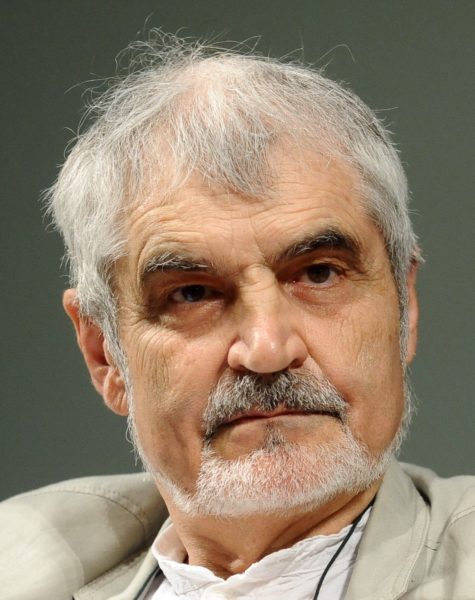
Serge Latouche, an influential economist and philosopher, has suggested and clarified many the steps the capitalist culture should take in order to reverse the continuous destruction of the planet.
In the first place, there is the need to clarify what constitutes the key reasons for this gross misalignment of the economy with ecology. Gross Domestic product growth is an obsession. However we tune out the negative consequences it brings. Instead we let this hunger for “development” drive our social system. Ultimately we’ll meet the disastrous ecological and social consequences.
There’s the creation of a continuous desire (and attempt at progress) that creates the illusion of the need for perpetual development and increment of capital – without any legitimate improvements. This causes the situation where the quantity is always above quality. In itself is the creation of a system based on infinite needs and response to them. This becomes a conundrum since our planet and its resources are finite and not compatible with this desire for infinite growth which is putting at risk the biosphere’s ability to regenerate; specially because the economy is based heavily on energies whose use is based on irreversible and polluting transformations. As a result of these systematic behaviors, we see the production of greenhouse gases increasing exponentially; extreme inequality situations; scarcity of resources and lifestyles based on wage labor in which rest and happiness are absent.
If the division of the global resources was made equally, it would be possible for our planet to be divided 1.8 hectares per person, but it does not translate to reality. On average one person uses 2.2 hectares for consumption, with the United States having an individual footprint of 9.6 hectares
-Latouche, 2011
Put differently, we clearly see an inequality here, in which some consume more than the planet can produce and end up having behavior based on waste, while others live in countries marked by hunger and scarcity and dangerous and inhumane jobs with absurd schedules. In some areas, such as agriculture, we see that even though have come to be an increase in productivity, energy efficiency turns out to have been declining.
This system, so clearly flawed, bases itself in three factors: advertisement, reduction of prices and exploitation of workers. Advertising maintains a much heavier power and funding than many of us are aware of, playing the role of influencing us uninterruptedly to want and buy goods that we don’t really want and useless. Allied with the decreased prices banked on the systemic exploitation of workers, creates a system where the poor remain poor.
Degrowth: Taking Society Down a Few Pegs
Latouche suggests the concept of degrowth. He explanations it as a political slogan with theoretical implications that aspires to abolish the monotonous growth of the economy. Associated with ecological policies it can be translated to the idea of a sustainable alternative aligning humanism and equilibrium with the Earth. Growth infiltrates our aspirations in such a destructive way in economic and political practice that transforms man into the residue of a system that strives to render him useless without it. Thus, transforming current societies into autonomous societies in which there is no need for the economy to create a scarcity of goods where it does not exist which. In turn, creates real and dangerous shortages on our planet.
Steps to Degrowth
In itself this is the idea of reversing the damaged made, creating a “concrete utopia” without any fixed dogmas, yet questioning the capitalistic system created. It does not mean that one would send a “cease and decease” letters to every single company. Degrowth is not a word opposite to growth, it is just a concept possible in association with the 8 R’s. They are:
- Reassess and reconceptualize the values we attach importance to.
- Restructuring of the production system taking these values into account.
- Redistribution of natural wealth and heritage, whether between peoples or between classes and individuals.
- Relocation of production, to favor local production.
- Reducing both the impact on the biosphere by limiting excess consumption and waste.
- Rediscovery of local economic autonomy, so that peoples are able to obtain food and economic self-sufficiency.
- Recovering purchasing power and ending the dependence of the peoples of the South on capital flows and multinationals.
These are the guidelines Latouche suggests as a base to incentivize transformation and reform of the current economic system and therefore the way we treat Nature. The environmental issue can only be handled if the social problems linked with the system that created it are also addressed, and the author’s degrowth plan aims to do just that. But this can only happen when workers in the South are no longer exploited and have access to their own country’s natural resources and goods, which should ideally lead to wealth sharing. In the current situation we find that the poorer people tend to spend the resources that would be viable for their long-term survival, to satisfy the desires of a rich minority who in turn do not reward them with fair salaries of the requested productions.
We need to rethink society by inventing another social logic, changing values and concepts, changing structures, relocation economy and life.”
-Serge Latouche
It is necessary that the richest people not only assume responsibility for the climate crisis, but also adopt measures to combat it, not leaving the most impoverished people to deal with its consequences and changing the world production system so that there are no power inequalities so marked. Globalization and colonization deprived many peoples to their own cultural identity in favor of economic desires of a minority. There is the call to attempt the reimbursement of the most affected, in order to give this people autonomy and self-sufficiency, which can only be made out of the system of growth.
As already stated, the critical issue of the current ecological crisis is the economic system imported during colonization – Capitalism. It is however imperious to understand the cultural background that justified this ideology. At the very center is the perception of what Nature is.
Westernization
In the Western World after the attempted deletion of its own cultures in the name of “normalcy”, or in other words, hegemony. The comprehension of how the natural world works has been corrupted by other priorities, such as profit, “development” and even civilization. Mainly because of how the understanding of the natural world was mythologized. At its root, Nature is understood in the terms of the Garden of Eden. It is known as the Garden of God – with the most luscious fruits, infinite vegetation, every animal in sync with the humankind – in sum the ultimate oasis. This idea was time and time again idealized and reproduced as an achievable reality, whilst destroying entire ecosystems for mining resources. At its center is the authorization to try subjugating the wilderness into said garden, to transform the “female” hysteria into the organized civilized “masculine”.
This was the ideology used during the colonization of the Americas, imported as if part of the story of the land. It led to the destruction and erasure of cultures so much richer and even complex than the ones that arrives. The idea that it was man that named all creatures and was able to define it, is a power imbalance created as to justify the atrocities made in the name of the god that commands the modern society – Greed.
As a culture, western society has destroyed an insane number of naturals justified by their belief system, but to what cost? It’s hard not to condemn an entire cultural system based on the veneration of the accumulation of money and a God that was never in this reality – solely created it – and if Nietzsche is right died long ago.
The destruction of the south hemisphere has been done. The oil has been sucked from the earth. The animals have been killed. And the forests burned for the plantation of rubber and palm oil. But what will be of us? If the scientists are right, we will go extinct in the next 100 years. Yet we don’t need to be a genius to understand how the planet is simply disposing of the virus that has become humankind. The temperatures have been rising. The fish dying. And entire ecosystems burned to ashes.
It is imperative that the main companies responsible for this destruction are held accountable. It is optimistic to believe we still have time to change, but what is there left if not hope. There are many ways that one can change their small habits that might make a difference, like eating less meat or using more sustainable resources. However, the entire system has made it impossible for most people to be able to make such decisions. Maybe activism and spreading awareness through all generations and social classes are truly the only answers, but are they a solution? Until there’s a reform of the current economical mentality the ecological myths and issues talked about are going to be our doom.
References used
Granjo, S. (2021). COMBATER O CRESCIMENTO DESTRUTIVO E EVITAR A DESTRUIÇÃO ECOLÓGICA: Economia Política, desigualdades e decrescimento.
Imelda Martín Junquera, F. M. (october de 2018). Mythology and Ecocriticism: A Natural Encounter Introduction 1. Ecozon European Journal of Literature Culture and Environment 9(2):1. doi:10.37536/ECOZONA.2018.9.2.2779
Latouche, S. (2011). Pequeno Tratado do Decrescimento Sereno. São Paulo: Edições 70.
Martinez-Alier, J. (2017). Justiça Ambiental e Decrescimento Econômico: Uma Aliança entre Dois Movimentos. Em Tensão entre Justiça Ambiental e Justiça Social na América Latina: O Caso de Gestão da Água (pp. 25-66). Campina Grande: Editora da Universidade Estadual da Paraíba.
McKinley, D. (1964). The New Mythology of “Man in Nature”. Perspectives in Biology and Medicine, pp. 93-105. doi: https://muse.jhu.edu/article/404520
Singh, R. P. (1993). Cosmos, Theos, Anthropos: An inner vision of sacred ecology in Hinduism. National Geographical Journal India, 39.



